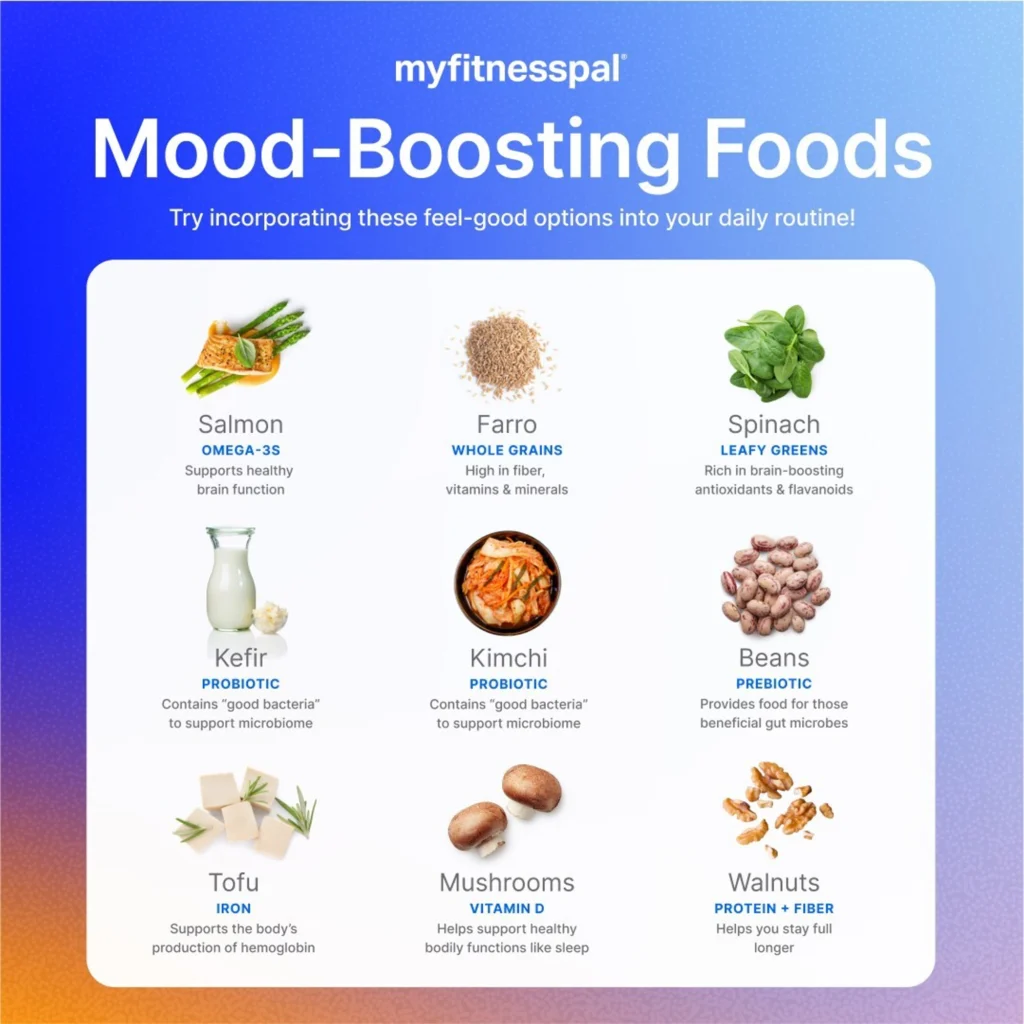MyFitnessPal White Paper Explores Link Between Nutrition and Mood

Using comfort foods as a quick fix can have long-term effects on mood and well-being, according to a new paper from the nutrition and food tracking app and Dr. Taitz
Experiencing complex emotions can trigger a tendency to reach for less nutrient-dense foods, according to a new white paper, “Food + Mood,” authored by MyFitnessPal and Dr. Jenny L. Taitz, Psy.D.
The global nutrition and food tracking app, along with Dr. Taitz—assistant clinical professor in psychiatry at the University of California, Los Angeles, and author of “Stress Resets: How to Soothe Your Body and Mind in Minutes” and “End Emotional Eating: Using Dialectical Behavior Therapy to Cope with Difficult Emotions and Develop a Healthy Relationship with Food” — set out to explore the science behind how nutrition affects mood and coping strategies.
“In analyzing the results of nutritional research tied to mood, it’s clear that our mood drives our eating, and our eating drives our mood,” Dr. Taitz said. “Many people turn to highly palatable foods for a quick fix, only to face long-term repercussions on their emotional well-being.”
One valuable technique to help support emotional well-being, Dr. Taitz advises, is food tracking.
“Using a food and nutrition tracking tool like MyFitnessPal may help empower a shift from mindless eating to mindful choices that support our health goals,” she continued.

While many people have drowned their sorrows in a pint of ice cream, the white paper reveals the long-term effects of such choices on mood and emotional well-being.
The paper also aims at the average American diet, which MyFitnessPal and Dr. Taitz note may not support holistic wellness goals, as it often contains nearly double the recommended daily limit of added sugar. A study published earlier this year found that a diet high in sugar is linked to a higher prevalence of depression, while a Mediterranean diet may lower the risk of depression.
Although some people cope with stress by overeating, others may eat less, resulting in increased feelings of tension, anger, and fatigue. The white paper highlights that nutrients such as B12, folate, and zinc play crucial roles in maintaining emotional balance, while deficiencies in these nutrients may increase irritability and depression.
Dr. Taitz and MyFitnessPal suggest viewing food choices as opportunities for long-term well-being instead of immediate comfort can be helpful. Other strategies – such as meal prepping, resisting the urge to eat “comfort foods” and allowing the feeling to pass, practicing meditation and positive self-talk, and identifying triggers to chart a better course, can also be solutions that support health and well-being.
“At MyFitnessPal, we’ve always seen tracking as a tool for gaining insight on overall nutrition intake and for supporting small behavioral shifts that can add up to big, more sustainable change,” said Melissa Jaeger, head of nutrition for MyFitnessPal and registered dietician. “In reviewing the analysis, the connection between food and mood is clear, and it’s our priority to support members with their health through nutrition tracking to bring awareness to the foods impacting their overall goals.”
In September, MyFitnessPal became the nutrition tracking app of the Philadelphia Eagles — a multi-year collaboration that will serve as a tool for the NFL players.
Courtney Rehfeldt has worked in the broadcasting media industry since 2007 and has freelanced since 2012. Her work has been featured in Age of Awareness, Times Beacon Record, The New York Times, and she has an upcoming piece in Slate. She studied yoga & meditation under Beryl Bender Birch at The Hard & The Soft Yoga Institute. She enjoys hiking, being outdoors, and is an avid reader. Courtney has a BA in Media & Communications studies.



